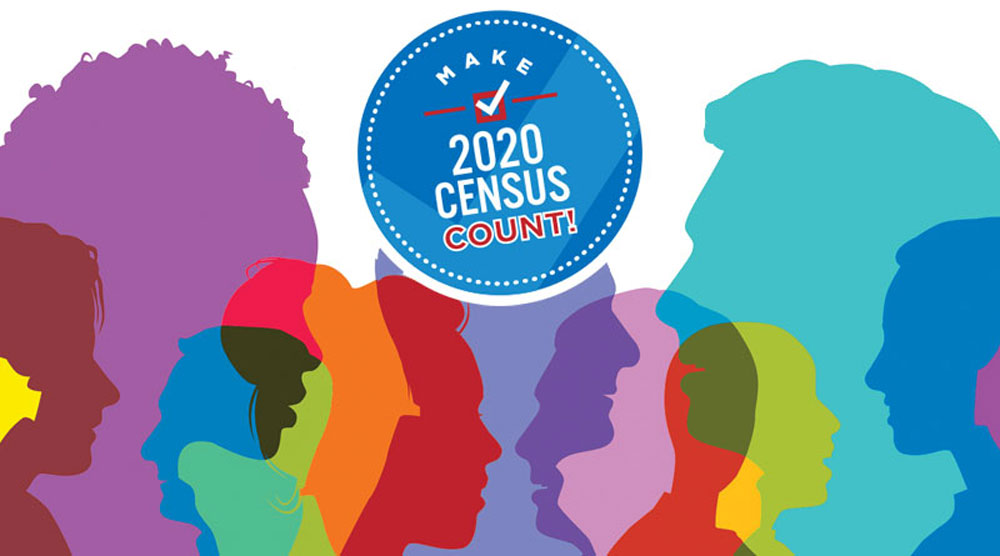- Details
- Category: Senator Christopher Belt News
 EAST ST. LOUIS – In order to remove the growing concerns of procedural fairness in all industries for people of color, State Senator Christopher Belt (D-Centreville) says equity in food access, agriculture, cannabis and technology needs to further addressed.
EAST ST. LOUIS – In order to remove the growing concerns of procedural fairness in all industries for people of color, State Senator Christopher Belt (D-Centreville) says equity in food access, agriculture, cannabis and technology needs to further addressed.
“Accessing healthy food is still a challenge for many families, particularly those living in low-income neighborhoods, communities of color and rural areas,” Belt said. “Food insecurity has heavily increased during the COVID-19 pandemic and the issue needs to be further addressed.”
On Friday, the Senate Executive, Commerce and Economic Development, and Agriculture Committees held a joint hearing on equity in food access, agriculture, cannabis and technology. The discussion focused on increasing access to healthier foods in food deserts, threats to agricultural lands, equity in rural, suburban and urban farming, and equity in the cannabis industry.
Read more: Belt: Accessing healthy food is still a challenge for many families
- Details
- Category: Senator Christopher Belt News
 EAST ST. LOUIS – State Senator Christopher Belt (D-Centreville) expressed his support for Thursday’s joint committee hearing on increasing diversity in labor unions, apprenticeship programs and the workforce.
EAST ST. LOUIS – State Senator Christopher Belt (D-Centreville) expressed his support for Thursday’s joint committee hearing on increasing diversity in labor unions, apprenticeship programs and the workforce.
“Diversity and inclusion are essential in creating a well-rounded, productive, successful labor force,” Belt said. “Labor unions and apprenticeship programs are enormously helpful to workers entering the industry. When we expand these services to reach people of color, it can enable more Illinoisans to find good-paying, lifelong careers.”
Read more: Belt expresses his support for increasing diversity in labor unions
- Details
- Category: Senator Christopher Belt News

EAST ST. LOUIS – To help slow the spread of the number of positive COVID-19 cases in the Metro East, State Senator Christopher Belt urges residents to wear a mask and continue to social distance.
“If residents do not do their part in protecting themselves and other community members, we will not be able to stop the amount of people who get the virus,” Belt said. “Residents need to continue to wear a mask and properly social distance to keep ourselves and loved ones safe.”
This week, Governor JB Pritzker and the Illinois Department of Public Health announced new COVID-19 resurgence mitigations that were implemented in Region 4 Wednesday following a 7-day rolling average test positivity rate of 8% or higher for three consecutive days.
Read more: Belt urges community members to help slow the spread of COVID-19
- Details
- Category: Senator Christopher Belt News
 EAST ST. LOUIS - To expand high-speed internet access to more households and businesses in the Metro East, State Senator Christopher Belt (D-Centreville) announced $50 million in matching grants is now available in the second round of the Connect Illinois program.
EAST ST. LOUIS - To expand high-speed internet access to more households and businesses in the Metro East, State Senator Christopher Belt (D-Centreville) announced $50 million in matching grants is now available in the second round of the Connect Illinois program.
"Connect Illinois is the largest broadband expansion grant program in the country, and it has the potential to make a huge difference to our community," Belt said. "Roughly 177 Metro East households will receive internet access thanks to the first round of grants. I urge eligible applicants to apply for this second round to expand the number of homes and businesses that can benefit from this historic program.”
Read more: Belt announces second round of broadband expansion grant applications is now open
- Details
- Category: Senator Christopher Belt News

EAST ST. LOUIS – In an effort to increase state contracting opportunities for Black vendors, State Senator Christopher Belt (D-Centreville) spoke Friday about the importance of creating new standards that ensure agencies are practicing fair contracting.
“Black Americans are struggling to secure opportunities in supplier diversity, no matter the industry,” Belt said. “Illinois’ goal is to decrease disparities for all businesses of color by increasing sustainability and providing them a fair share of local, state, and federal contracting.”
On Friday, the Senate Executive, Commerce and Economic Development and State Government committees, and the Senate Special Committee on Supplier Diversity held a joint hearing to cover the importance of increasing the number of opportunities for Black vendors to do business with the state.
Read more: Belt: Black businesses deserve their fair share in state contracts
- Details
- Category: Senator Christopher Belt News
 EAST ST. LOUIS – State Senator Christopher Belt (D-Centreville) expressed his support for the third pillar of the Illinois Legislative Black Caucus’s agenda: creating economic access, equity and opportunity for Black Illinoisans. He particularly supports increasing low-income, permanent and affordable housing options for Illinois families.
EAST ST. LOUIS – State Senator Christopher Belt (D-Centreville) expressed his support for the third pillar of the Illinois Legislative Black Caucus’s agenda: creating economic access, equity and opportunity for Black Illinoisans. He particularly supports increasing low-income, permanent and affordable housing options for Illinois families.
“The gap between African American and white homeownership is larger today than when the Fair Housing Act was passed in 1968. This has contributed to a racial wealth gap—nearly 1,000%—between median white and African American households," Belt said. “Because home ownership is how most families save and build wealth, the disparity in home ownership is a central driver of the racial wealth gap. We need to continue to advocate so every Illinoisan has access to housing that is affordable, stable, safe and healthy.”
- Details
- Category: Senator Christopher Belt News
 EAST ST. LOUIS – With flu season approaching, State Senator Rachelle Crowe (D-Glen Carbon) and Christopher Belt (D-Centreville) urge older Illinoisans to get their flu shot as an added layer of protection during the COVID-19 outbreak.
EAST ST. LOUIS – With flu season approaching, State Senator Rachelle Crowe (D-Glen Carbon) and Christopher Belt (D-Centreville) urge older Illinoisans to get their flu shot as an added layer of protection during the COVID-19 outbreak.
“It’s important for all Illinois residents to get their flu shot, but especially our older adults,” Belt said. “Older adults are at greater risk of contracting the COVID-19 virus and influenza, so getting the flu shot is critical to protecting their health this winter season.”
According to the Illinois Department of Public Health, older adults and people with chronic health issues are more likely to develop serious complications resulting from the flu. While flu seasons are variable in their severity, people 65 years and older tend to be the most vulnerable. According to the Centers for Disease Control and Prevention, an estimated 70-85% of seasonal flu-related deaths have occurred in adults 65 years and older.
“Health experts insist getting a flu shot is an easy but vitally important way to avoid getting sick,” Crowe said. “With many concerns surrounding hospitals and our aging population due to the COVID-19 pandemic, I encourage residents to take recommendations from their healthcare professionals to keep themselves healthy.”
Most insurance plans, including Medicare and Medicaid, cover one flu shot per flu season. It is always advisable to consult a health care provider before seeking medical treatment. Find a flu vaccine provider near you with Vaccine Finder.
- Details
- Category: Senator Christopher Belt News
 EAST ST. LOUIS – As the deadline to complete the 2020 census quickly approaches, State Senator Christopher Belt (D-Centreville) is hosting a school supplies giveaway and census drive on Saturday, Sept 12, to help more families get counted.
EAST ST. LOUIS – As the deadline to complete the 2020 census quickly approaches, State Senator Christopher Belt (D-Centreville) is hosting a school supplies giveaway and census drive on Saturday, Sept 12, to help more families get counted.
"Residents in the community need to understand the amount of resources and federal funding that are put at risk if they are not counted," Belt said. "This is the last month to fill out the 2020 Census and it’s important every person is counted. I hope families come out to receive school supplies for the upcoming semester and also get counted to ensure we have all the funding we need for the next 10 years."
Belt is hosting a free mask and school giveaway with Representative Latoya Greenwood. Parents will be able to pick up school supplies for their children, receive help filling out their census forms and registering to vote. The event will be held at East St. Louis Senior High School Parking Lot, located at 4901 State Street from 10 a.m. to 11.30 a.m.
The deadline to complete the 2020 census is Sept.30, and many Metro East communities response rates are critically low. The response rate in East St. Louis is 45%, Venice 43.9%, Washington Park 32.5% and Brooklyn only 39.8%. Census data determines federal funding for many community resources.
To increase those response rates, Belt is also hosting a Census Drive at Saint Mark School, located at 502 Broadway in Venice, from 11 a.m. to 3 p.m. Families who are unable to attend either event can still get counted by filling out the form at https://my2020census.gov.
More Articles …
Page 22 of 27













 © 2026 Illinois Senate Democratic Caucus
© 2026 Illinois Senate Democratic Caucus